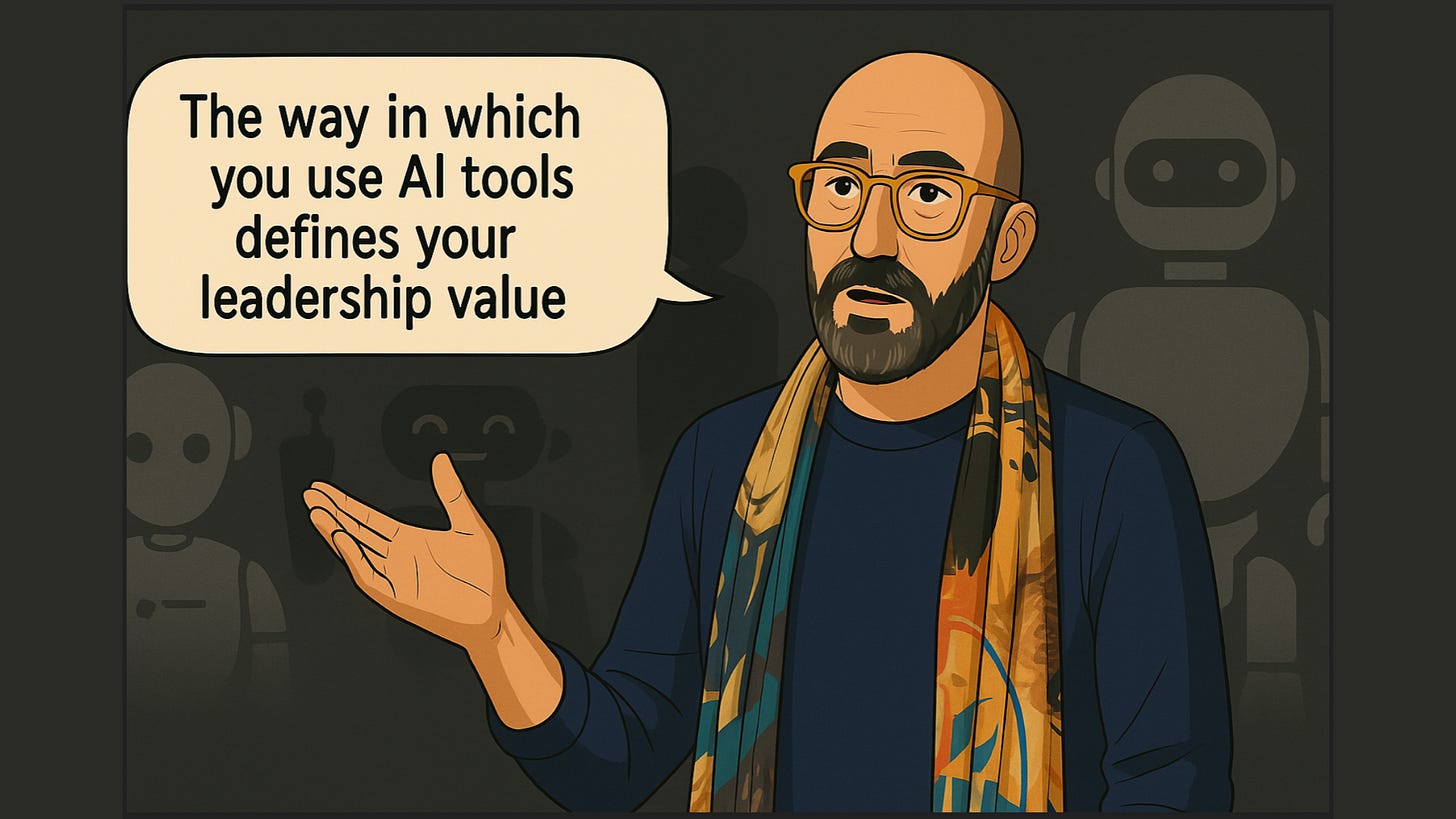🤖 🤷♂️ The rise of the "ChatGPT exec"
How cosplaying your path into leadership with AI is a bad idea
Lately, a new breed of executive is emerging — armed with ChatGPT prompts, LinkedIn slides, and a misplaced sense of mastery. They’ve discovered AI tools not as a way to think deeper or explore further, but as a shortcut to sounding smarter.
Enter the cosplaying exec: full of borrowed language, manufactured certainty, and little connection to the actual work. Suddenly, everyone has “a plan,” “a vision,” or “a bold new strategy” — generated in minutes, tested by no one, and imposed on teams already overstretched and underheard. It’s performative authority, dressed up as innovation. The output is often a flood of verbose AI-generated documents no one asked for — the kind of text that takes forever to read (or needs another AI just to summarize).
More often than not, it collapses at the point of execution, leaving teams to pick up the pieces.
This behavior is being fed by a dangerous new mantra: total efficiency. AI becomes a hammer, and everything is a nail — nuance, context, and long-term thinking be damned.
Don’t get me wrong — I’m not an AI skeptic. Quite the opposite. I use AI hundreds of times a day (each session has 10 to 20 prompts in average): thinking, drafting, learning, testing. But I try to do it with depth, with taste, with context, and with an ongoing dialogue between machine output and human judgment.
(I know, it sounds a bit arrogant — like I think I’m the sommelier of AI prompts. Maybe I am. Or at least I’m trying not to be the guy who just pours whatever’s open and calls it innovation.)
Because the moment you outsource your curiosity, your discipline, your sensibility — you’re not augmenting your intelligence, you’re replacing it. And that shows. In the shallow thinking. In the copy-paste strategies. In the disengaged teams.
It reminds me of the early digital era in sports and media, when some execs would say, “Why should I invest millions in digital when my son built a website for free?”
The same blindness is happening again — just with more expensive buzzwords and faster timelines.
Let’s not confuse speed with clarity. Or automation with leadership.
Do not look for shortcuts that can damage your company, your team and eventually yourself.
AI is an extraordinary tool — but it’s not a personality, not a vision, and definitely not a strategy — at least not without you, your purpose, or the human in you.





